- Thyssenkrupp Steel
- Volkswagen Group
- Green Steel
- low-carbon steel
- Dirk Grobe-Loheide
- Vulcan Green Steel
- Scania
- Dennis Grimm
- Federal Ministry for Economic Affairs and Climate Action
Volkswagen Group Inks MoU With Thyssenkrupp Steel To Source Low Carbon Steel
- By MT Bureau
- October 23, 2024

Caption: Matthias Eden, Head of Group and Brand Purchasing Metal Raw Material and Exhaust Systems, Volkswagen Group Michael Bäcker, Head of Group Procurement Metal, Volkswagen Group Dennis Grimm, Spokesman of the Executive Board Thyssenkrupp Steel Simon Stephan, Sales Automotive, Senior Vice President, Thyssenkrupp Steel.
Volkswagen Group and Thyssenkrupp Steel have signed a Memorandum of Understanding (MoU) for the planned supply to Volkswagen Group of low-carbon steel from Thyssenkrupp Steel’s future direct reduction plant.
This agreement the partners state underscores the joint commitment to sustainability and climate protection, marking a further milestone in their long-standing partnership.
The Thyssenkrupp Steel direct reduction plant is scheduled to be commissioned from 2027. It will operate with hydrogen and green electricity, which will significantly reduce its carbon footprint. At the start of the ramp-up phase, the plant will use natural gas as the reducing agent, before the process is switched successively to hydrogen. The resulting product – bluemint Steel – will be certified in accordance with recognised standards and can qualify for the LESS Label A if the hydrogen used in production is generated entirely from renewable sources. This classification, developed by the German Steel Association flanked by Germany’s Federal Ministry for Economic Affairs and Climate Action, provides a full picture of a steel product’s climate impacts and documents its almost emission-free production.
Dirk Grobe-Loheide, Member of the Board of Management of the Volkswagen Brand responsible for Procurement and Member of Volkswagen AG’s Extended Executive Committee said, “Decarbonising supply chains is a decisive factor for the Volkswagen Group on the road to carbon neutrality. We want to achieve this goal by 2050 at the latest, and using low-carbon steel is an important step in making supply chains at Volkswagen Group even more environmentally friendly going forward. This MoU with Thyssenkrupp is an important building block in our strategic focus on the use of low-carbon steel.”
Dennis Grimm, Spokesman of the Executive Board of Thyssenkrupp Steel states, “Signing this memorandum of understanding marks an important step on our path to decarbonising key industrial processes in Germany. Our long-standing partnership with Volkswagen Group demonstrates that, alongside our technical development work, we can also collaborate in making great strides toward a sustainable future.”
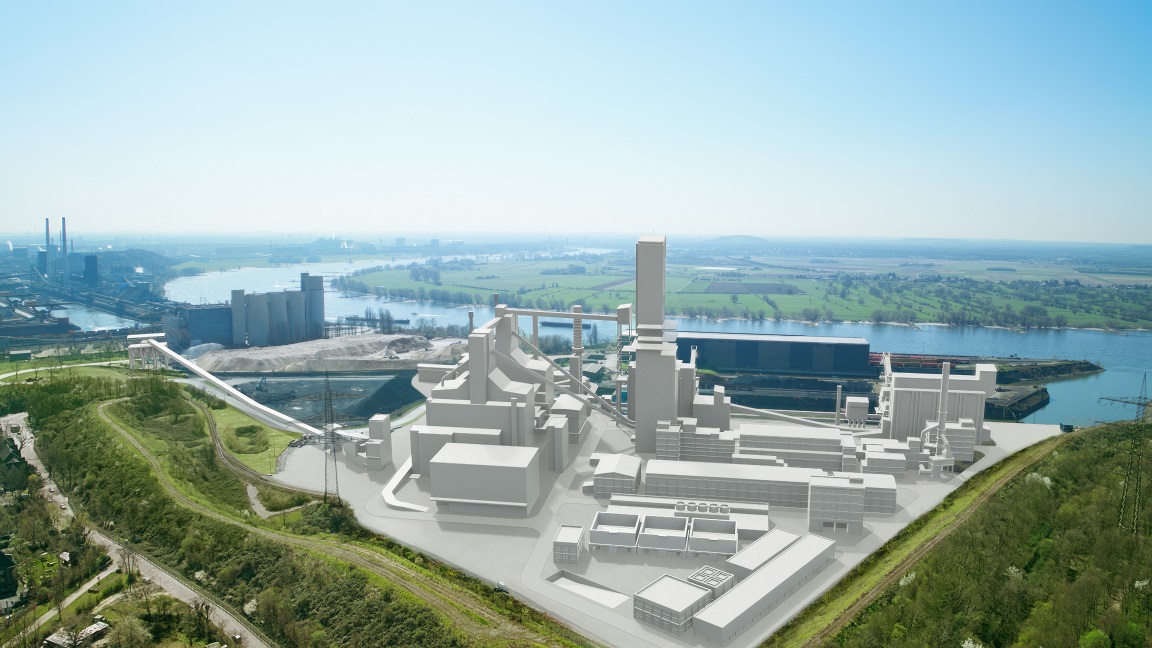
Volkswagen Group is expected to benefit significantly from this innovative process to avoid CO2 emissions because 15 to 20 percent of an electric vehicle’s emissions are accounted for by the steel used. Moreover, this decarbonisation concept allows the manufacture of the full product portfolio in accordance with the usual specifications and in premium quality. Supplies are scheduled to start in 2028 and will then be expanded step by step.
The collaboration between the two companies increases their focus on the electromobility. It covers economical lightweight solutions for highly stable vehicle structures and electrical steel for efficient electric drive systems. Steel is playing a key role in the mobility transition, not only as a material for generators and electric engines but also as the material of choice for the bodies and other structural components of electric vehicles. In the context of electromobility, steel is becoming an increasingly important material because more of it is needed in electric vehicles – due to their large battery units – than in combustion vehicles.
The partnership between Volkswagen Group and Thyssenkrupp Steel demonstrates how sustainable solutions can be created thanks to innovative technologies and strategic alliances. It is one of a series of initiatives by the Volkswagen Group to expand the use of green steel in production. In addition to the collaboration with Thyssenkrupp Steel, Volkswagen Group has been in partnership with Salzgitter since 2022. Volkswagen Group and Vulcan Green Steel recently signed a MoU in respect of long-term partnership. The Group also has a stake in Swedish green steel manufacturer H2 Green Steel via its subsidiary Scania.
Bharat Forge Subsidiary JS Auto Cast Secures INR 3 Billion From Premji Invest
- By MT Bureau
- February 02, 2026
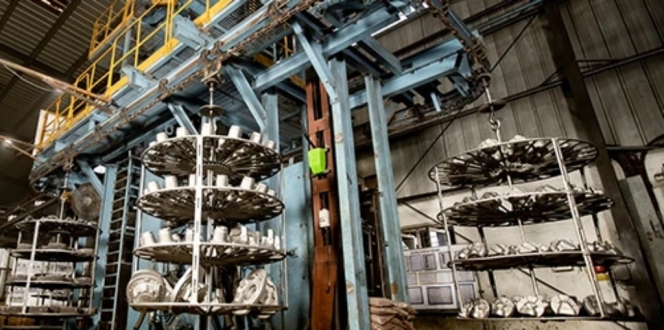
JS Auto Cast Foundry India (JSA), a subsidiary of Bharat Forge, has raised INR 3 billion crore in equity from Premji Invest (PI). Following the primary infusion of capital, Premji Invest will hold a 23 percent stake in the company on a fully diluted basis.
JSA is a supplier of ferrous castings for the industrial and automotive sectors. The company intends to use the capital to expand casting capacity, invest in medium casting capabilities, and pursue industry consolidation through acquisitions.
Since its acquisition by Bharat Forge in 2022, JSA has reported growth in revenue, exports, and profitability with a Compound Annual Growth Rate (CAGR) of 17 percent, 24 percent and 25 percent respectively.
Amit Kalyani, Vice Chairman & Joint Managing Director, Bharat Forge, said, “Since 2022 when we acquired JSA, the company has delivered excellent financial performance with topline, exports and profitability growing at a CAGR of 17 percent, 24 percent and 25 percent respectively, while enhancing its product mix and customer base. We are delighted to partner with Premji Invest (PI), a renowned and highly respected investor, in the next phase of JSA’s growth journey.”
The investment aligns with Premji Invest’s strategy of collaborating with engineering and manufacturing conglomerates on growth and consolidation initiatives.
Manoj Jaiswal, Partner, Premji Invest, said, “We are excited to partner with Bharat Forge, a premier engineering and manufacturing conglomerate in the country. Collaborating with leading conglomerates on their growth and consolidation journey is one of our strategic pillars. Through our investment in JSA, we look forward to jointly building a leading ferrous casting platform in the country.”
- Schaeffler India
- Symposium on International Automotive Technology
- SIAT 2026
- Deepak Kasturi
- Madhurisha VIppatoori
- Harsha Kadam
- Viswanathan Sambasivam
- Omkar Kulkarni
Schaeffler India Showcases Next-Gen Product Portfolio At SIAT 2026
- By MT Bureau
- January 28, 2026
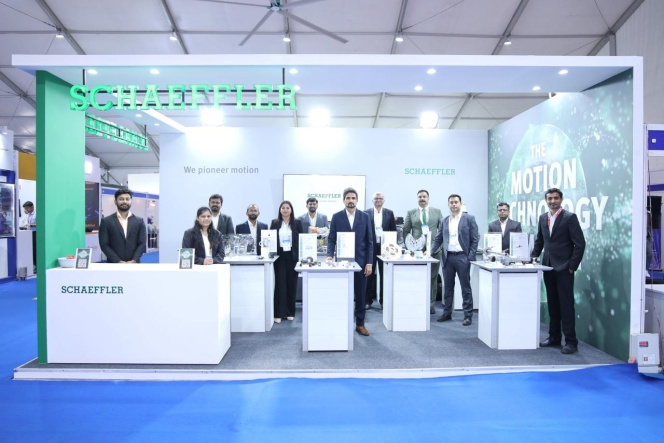
Tier 1 supplier Schaeffler India is showcasing a range of motion technologies at the Symposium on International Automotive Technology (SIAT) 2026. The company's exhibit at Hall Zone D includes electrification solutions such as drives, motors and modules, alongside powertrain systems for internal combustion engines and hybrid vehicles.
The portfolio on display features chassis components, sensors, fuel delivery modules, and bearings designed to reduce friction in vehicles. The company is highlighting its local engineering capabilities and its work with manufacturers to develop mobility solutions within India.
Company executives are participating in the symposium's technical programme. Madhurisha Vippatoori, Chief Technical Officer, is chairing the Testing and Evaluation track. Deepak Kasturi, Head of Innovation India, is delivering a keynote address regarding Euro 7 standards and real-time emissions monitoring.
The company stated that its presence at the event reflects its focus on engineering innovation, energy efficiency and collaborative development with automotive customers and academia.
Harsha Kadam, CEO & MD, Schaeffler India, said, “As a leading mobility solutions provider in India, we at Schaeffler are proud to be associated with all the leading automotive customers in shaping the future of mobility. We are equally committed to supporting our customers across various types of powertrains that will support cleaner, electrified, and intelligent mobility. Together, we are shaping a more secure, sustainable, and future-ready India.”
Viswanathan Sambasivam, Division Head - Powertrain & Chassis India, said, “SIAT provides an ideal platform to demonstrate how we are shaping mobility for India. Our focus is on co-engineering with OEMs, accelerating technology transfer, and strengthening local value creation. The solutions we are bringing this year represent the next step in advancing clean, safe, and smarter mobility.”
Omkar Kulkarni, Division Head - E-Mobility India, said, “India is one of our most important engineering hubs. Our teams here are working closely with customers to design for India, build in India, and innovate for India. The technologies displayed at SIAT underline our ability to combine global expertise with local development capabilities.”
Indian Auto Component Industry Set To Showcase Its Prowess At ACMA Automechanika New Delhi 2026
- By MT Bureau
- January 28, 2026
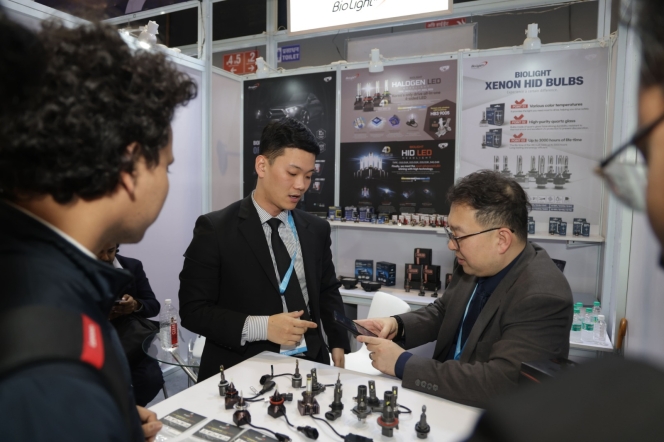
The Indian automotive component industry was valued at USD 80.2 billion in FY2025, with the aftermarket segment contributing USD 11.8 billion. Data from the Automotive Component Manufacturers Association of India (ACMA) indicates the sector grew by 6.8 percent to reach USD 41.2 billion in the first half of FY2026. Industry projections suggest the component market will reach between USD 111 billion and USD 200 billion by 2030.
Against this growth, the ACMA Automechanika New Delhi 2026 trade fair will take place from 5 to 7 February 2026 at Yashobhoomi, New Delhi. Organised by Messe Frankfurt Trade Fairs India and ACMA, the event will host more than 870 exhibitors. The fair serves as a platform for manufacturers, distributors and service providers to showcase innovations in spare parts, electronics, diagnostics and workshop equipment.
The exhibition will feature participation from 20 countries, including Germany, Japan, Korea and the USA. Dedicated pavilions will highlight technologies from nations such as China, Italy and Taiwan. The event focuses on electrification, alternative fuels and digital authentication. Exhibitors will display ethanol-ready components, hydrogen systems and electric vehicle charging solutions.
Raj Manek, Executive Director and Board Member of Messe Frankfurt Asia Holdings, said, “As India prioritises quality-led development across sectors, ACMA Automechanika New Delhi 2026 will showcase how the auto components and aftermarket industry is advancing in sync with global trends. The show will unite visitors and exhibitors in a massive international gathering, converging cutting-edge innovations, sustainable component solutions and clean-fuel ecosystems. Global participants are increasingly drawn to India's pivotal role in this transition, with organisations showing strong enthusiasm for tech-driven solutions to combat climate change and build a thriving and a cleaner future”.
Vinnie Mehta, Director General of ACMA, added, "India’s automotive aftermarket is moving towards a more structured, quality-driven and globally aligned future. The auto component industry grew by 6.8 percent to USD 41.2 billion in the first half of FY26, supported by stable domestic demand, a resilient aftermarket and sustained investments in capacity expansion, localisation and technology upgradation. ACMA Automechanika New Delhi provides an important platform for industry stakeholders to engage with emerging technologies, regulatory developments and global market opportunities”.
Sona Comstar Reports 39% Revenue Growth In Q3 FY2026
- By MT Bureau
- January 23, 2026
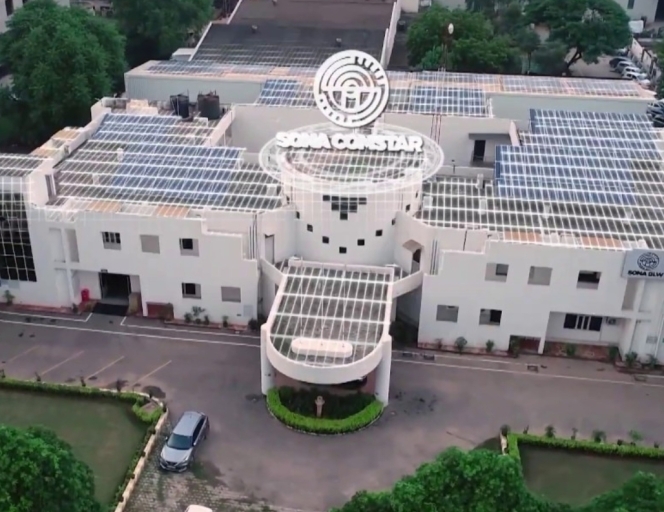
Sona BLW Precision Forgings (Sona Comstar) has announced its financial results for Q3 FY2026, reported revenue of INR 12.09 billion, a 39 percent increase YoY.
The company’s EBITDA grew by 25 percent to INR 3.2 billion with a margin of 25.2 percent, while net profit rose by 20 percent to INR 1.8 billion. Revenue from Battery Electric Vehicles (BEV) represented 38 percent of total turnover.
In the first 9-months of FY2026, the company secured six new programmes, bringing the total to 65 across 33 different customers. Additionally, Sona Comstar was awarded a programme from a new customer to supply hydraulic motor controller.
Vivek Vikram Singh, MD & Group CEO, Sona Comstar, said, “We achieved our highest-ever quarterly revenue, EBITDA, and adjusted net profit in Q3 FY2026. Our revenue grew strongly by 39 percent YoY, primarily driven by the expansion of our electric vehicle traction motor and railway business in India. BEV revenue share improved meaningfully to 38 percent in Q3 from 32 percent in Q2FY2026 and represents our second-best quarter till date in terms of absolute BEV revenue and share. We have commercialised a new product in this quarter, the hydraulic motor controller, leveraging our strengths in motors and controllers to develop the solution for a new application outside the current product portfolio. We continue to add new EV customers and win new EV programs from our existing EV customers. Moreover, we commenced sample production of in-cabin radar sensors in our new SMT line at Chennai facility in this quarter, making us one of the few automotive radar manufacturers in India with local SMT manufacturing capability.”







Comments (0)
ADD COMMENT